Survey story #1: Exploring young people’s diverse social identities in Indonesia and Lebanon
By
How was the YUP survey taken and who was involved? In this post, we will present a snapshot of our respondents’ backgrounds before delving further into how they participate in the cities.
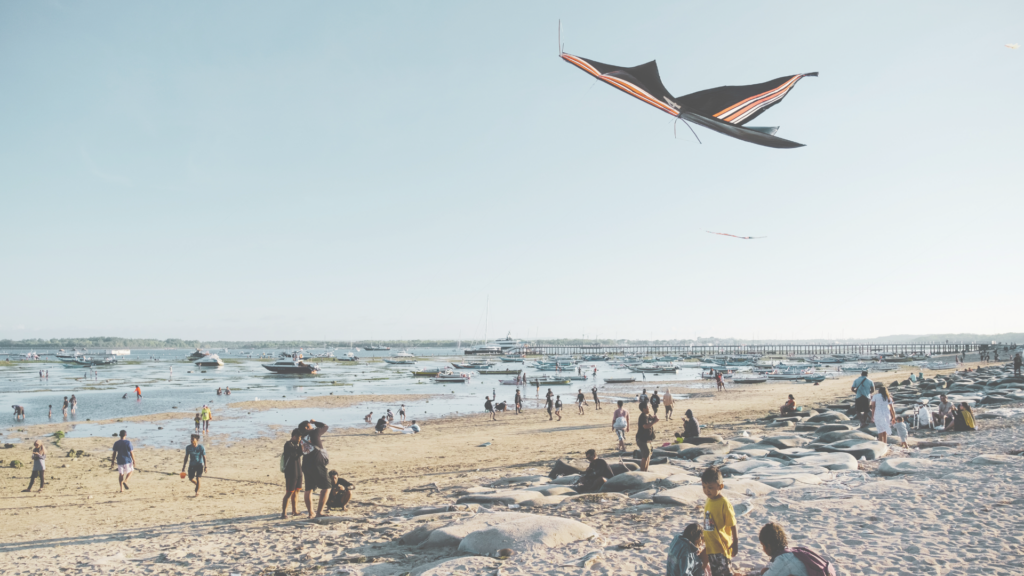
From June to August 2024, we reached out to 4,248 young individuals aged 10–24 who are living, working, studying, or registered in these four cities—Solo and Denpasar in Indonesia, and Bar Elias and El Mina in Lebanon. Completed in English, Arabic, and Indonesian, the survey involved local young people as citizen scientists and data collectors.
In the survey, we considered a wide range of young people’s social identities, such as age, gender, ability, ethnicity, nationality, religion, and current activities. Although achieving equal representation across the different variables was challenging due to varying local contexts and data collection limitations, the survey has a relatively low margin of error of plus or minus of 1.7% in Indonesia and 3.5% in Lebanon. For example, Indonesia had a significantly larger proportion of respondents than Lebanon, reflecting the population differences between the two countries.
How are these different social identities distributed?
Throughout the two months, we asked young people to participate in the survey in different places such as schools and public spaces. To engage the younger age group of 10–17, we collaborated with schools and local organisations to conduct the survey collectively. A significant portion of the respondents were aged 20–22 years old, dominated by Indonesian. While in Lebanon, the majority of engaged respondents fell at the age of 17–20.
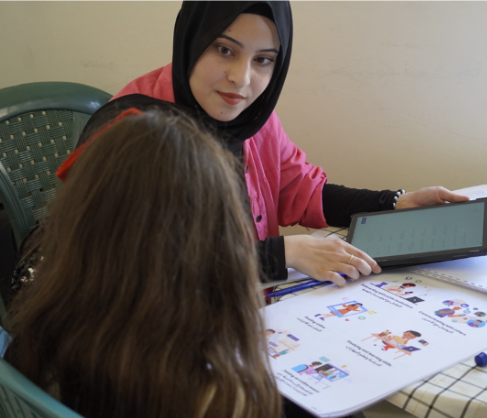
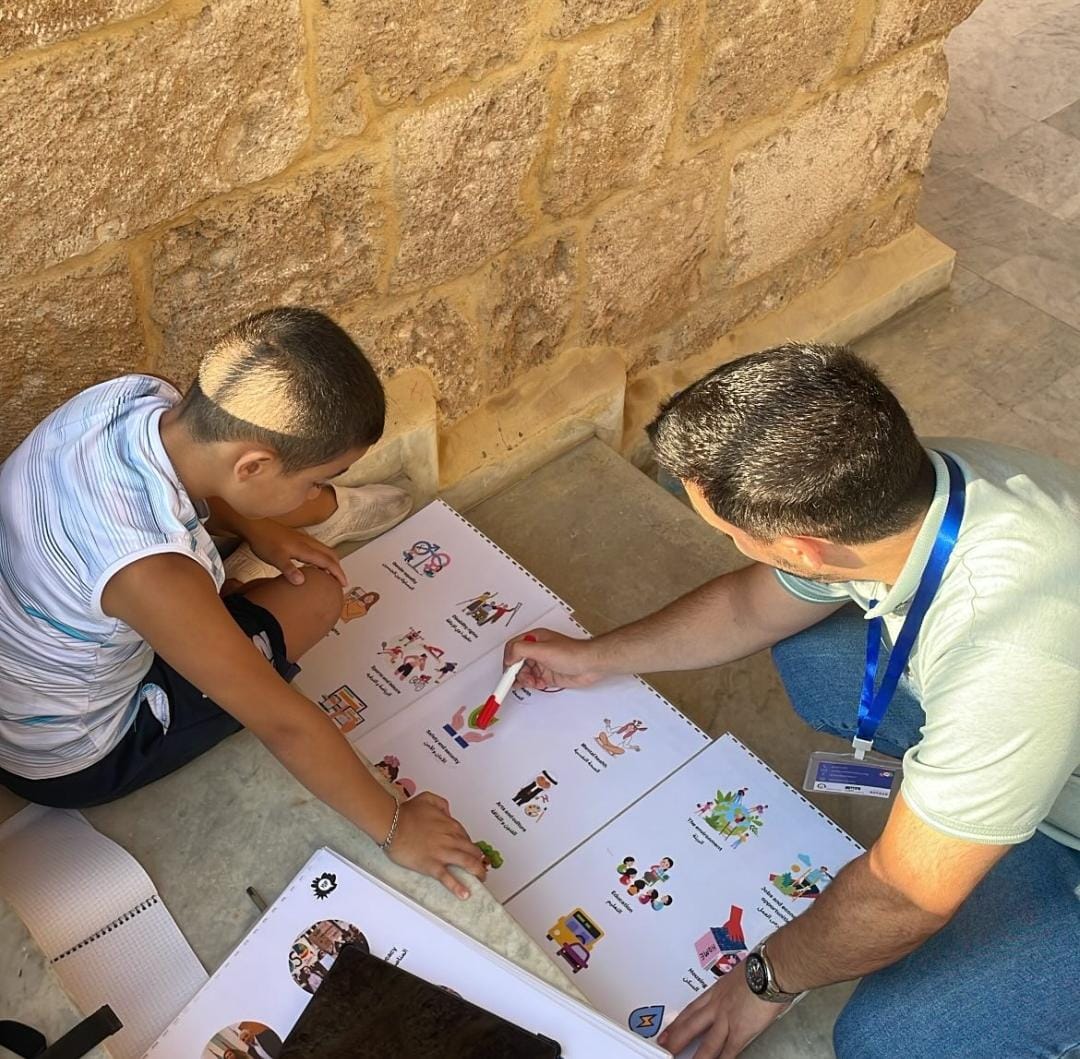
Data collection process with kids in Lebanon
In terms of gender, a balanced proportion of gender is ensured in this survey. 53% of respondents were female, while male took 46% of the proportion, while the remaining respondents chose the prefer not to answer or other option.
With this survey, we also included voices of people with disabilities to understand their aspirations about participation in urban context. We approached schools and communities of people with disabilities and engaged with 105 respondents.
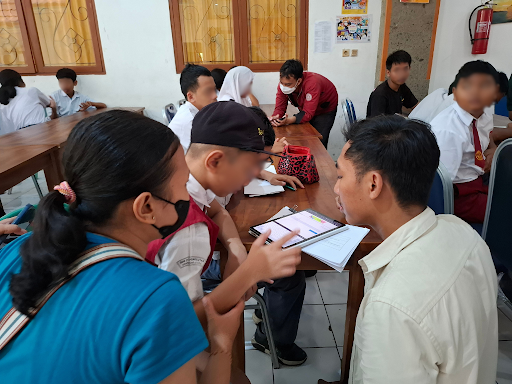
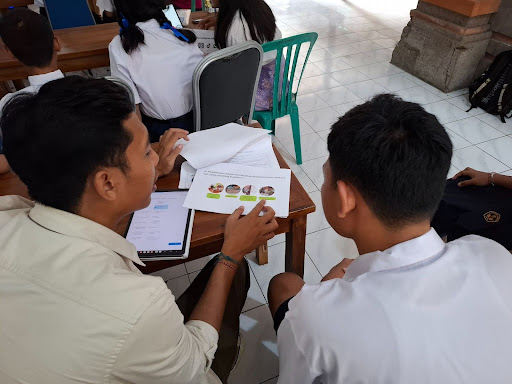
A collective survey process conducted with young people with disabilities in the Sekolah Luar Biasa (special needs school) in Denpasar
Ethnicities and nationalities are social identities that distinguish the context of Indonesia and Lebanon. In Indonesia, the government recognises only one nationality, Indonesian; and according to the National Statistics Bureau, Indonesia is home to over 1,300 ethnic groups. Although Solo is dominated by Javanese and Denpasar is dominated by Balinese; the respondents represented more than 75 ethnic groups. In contrast, Lebanon has a diverse mix of nationalities. The young people surveyed included Lebanese, Palestinian, Syrian, as well as other nationalities such as Brazilian, Kurdish, Ukrainian, and those of mixed heritage.
Regarding religion, in Indonesia, the majority of them are Islam (47%) and Hinduism (31%). However, other religions were also mentioned, including Christianity, Catholicism, Buddhism, and Confucianism. In Lebanon, the majority of respondents were Muslim.
Last but not least, as for the current activity, the majority of respondents were currently studying and working.
What else?
In the coming weeks, we will publish the full survey results, along with insights from our focus groups and interviews. Stay tuned for an in-depth look at how young people shape urban governance. Meanwhile, check out these testimonials from those who participated in our survey!
I am glad to help with this research. I hope young people’s participation in urban planning is improving, because they will be the ones who lead the country
—14 year-old respondent in Denpasar
There are many opportunities to give an impact to the city, even if it’s just to pave a road or help people
—10 year-old respondent in Bar Elias
…
Check our previous posts!
- Survey story #3: Unpacking digital media role in young people (dis)engagement in the cityYoung people today are born as so-called digital and technology natives. Digital media not only serves as a source of … Continued
- YUP survey story #2: How do young people participate in the city?How do young people take action on what matters to them? What factors encourage them? What challenges do they face? Continuing the survey story series, this section explores how young people in four cities take action on issues they care about in their communities.
- Survey story #1: Exploring young people’s diverse social identities in Indonesia and LebanonHow was the YUP survey taken and who was involved? In this post, we will present a snapshot of our respondents’ backgrounds before delving further into how they participate in the cities.
